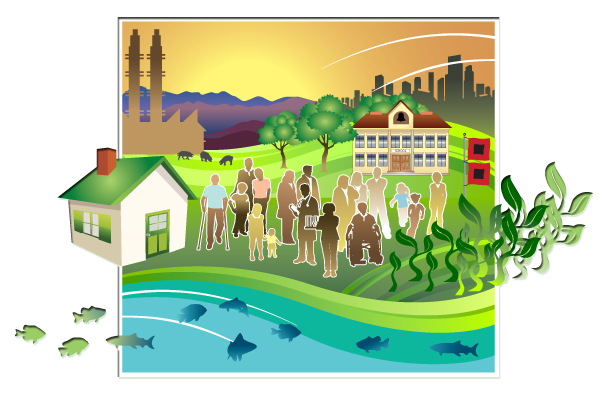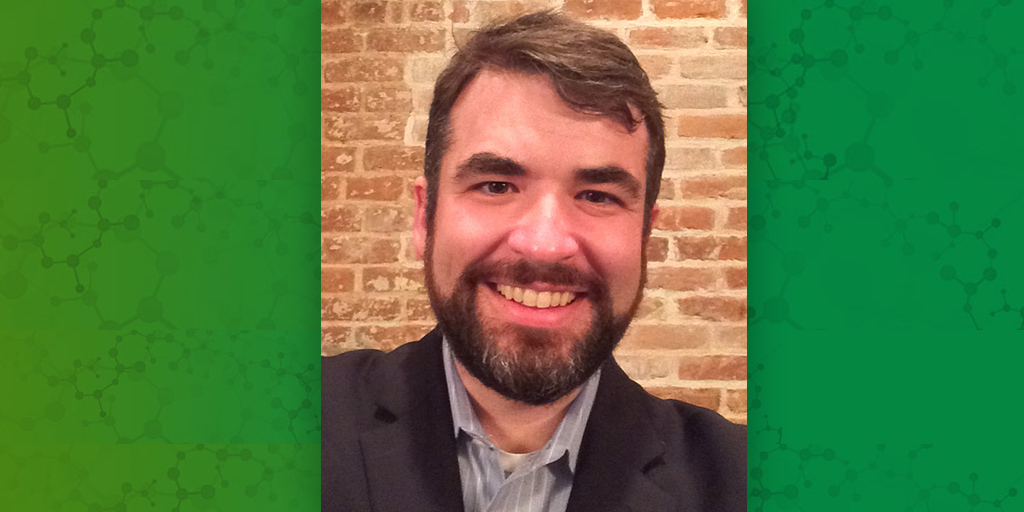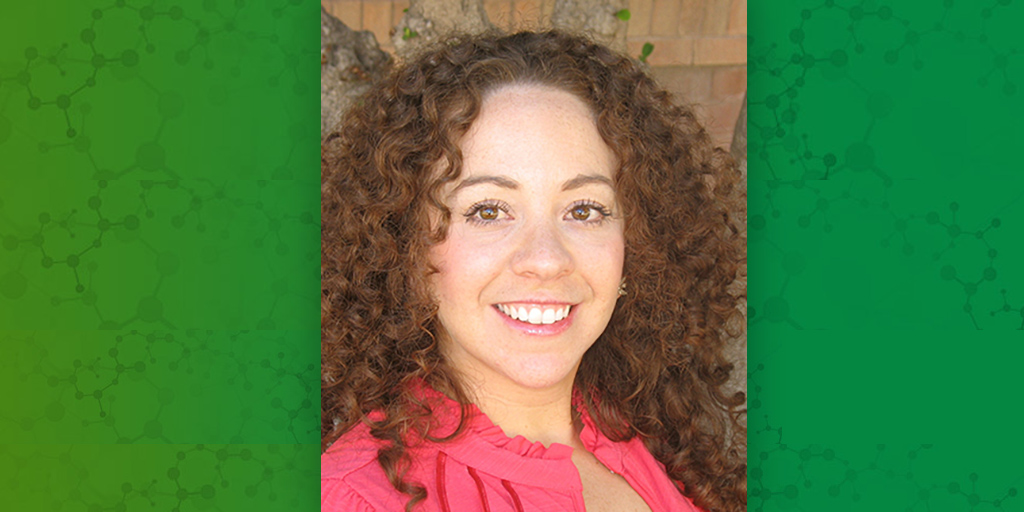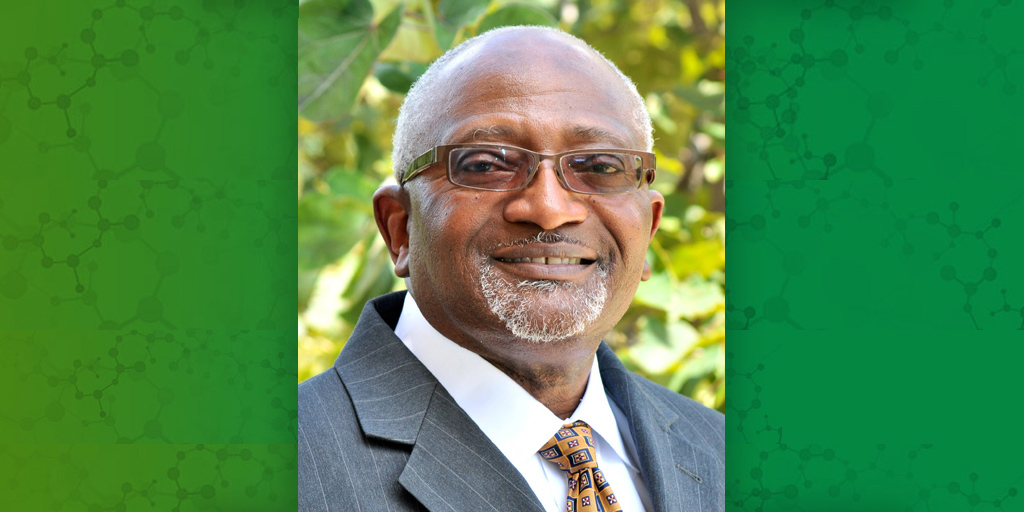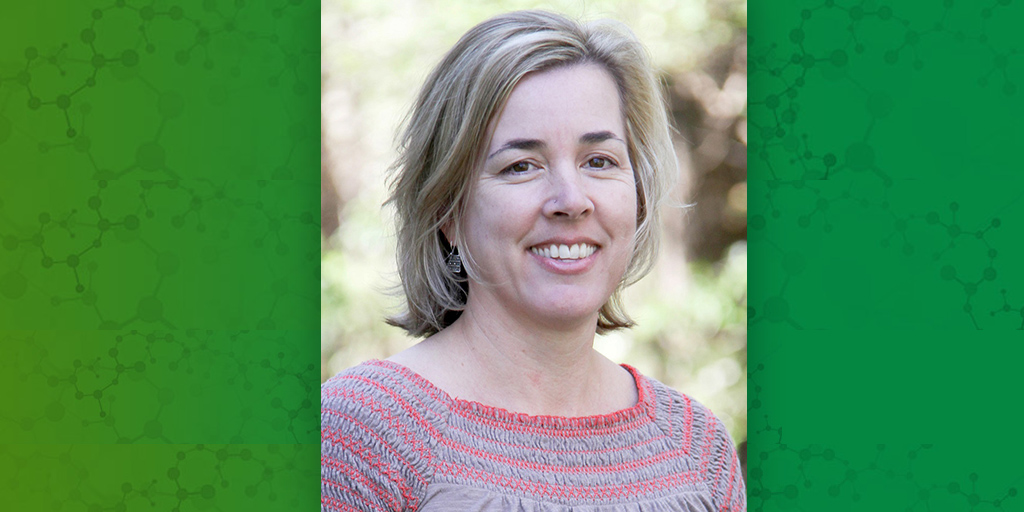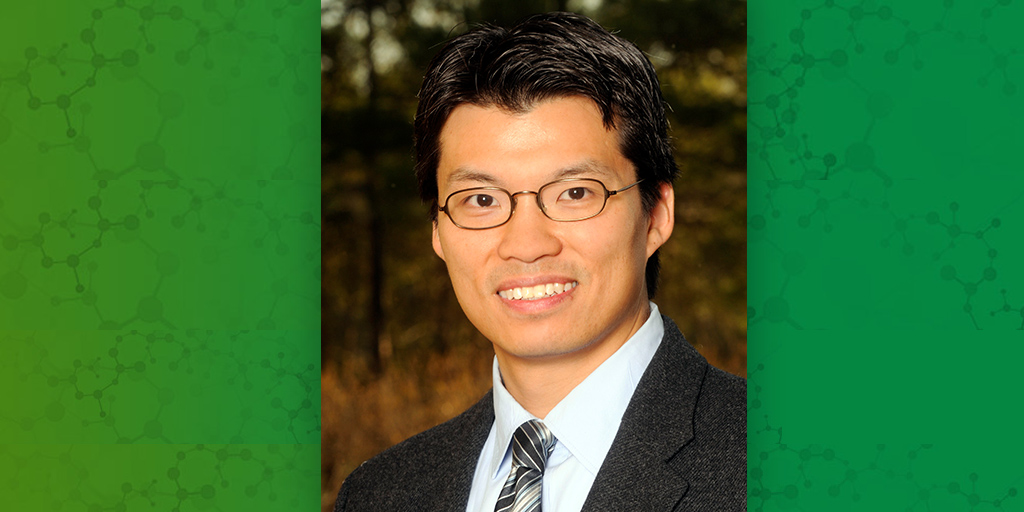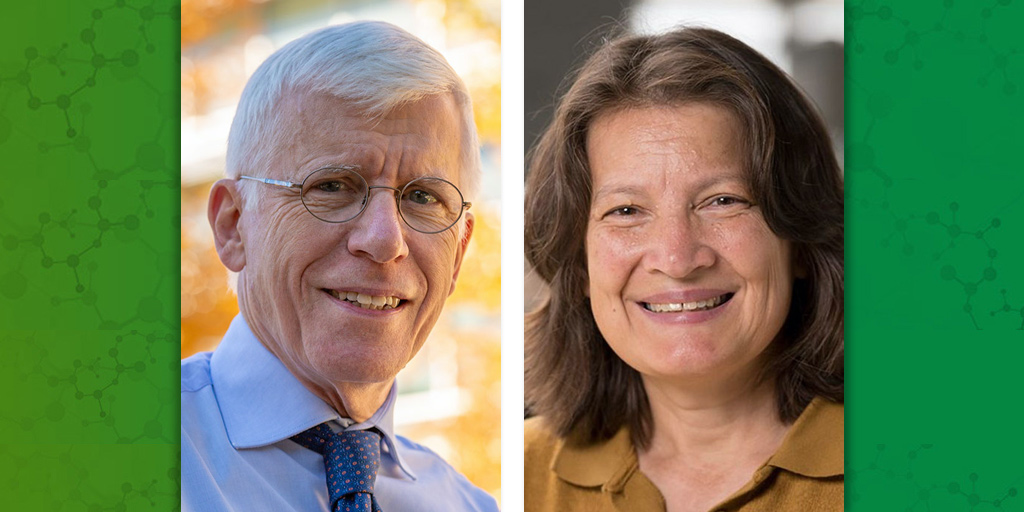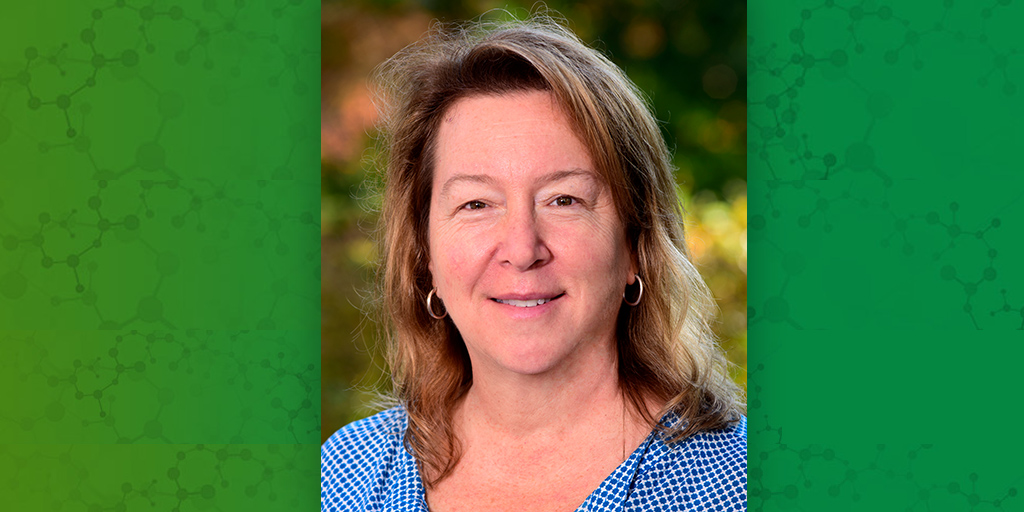Children’s Environmental Health Program Educates Pediatric Care Providers
Researchers at the Icahn School of Medicine at Mount Sinai developed an educational program for health care providers to reduce children’s environmental health risks in the U.S. Virgin Islands and Puerto Rico. The project was implemented following hurricanes in 2017 that struck those island territories. In a recent paper, researchers describe how they built upon existing partnerships to increase pediatric care providers’ capacity to address health concerns made worse after the hurricanes, due to water contamination, air pollution, and exposure to waste.
The NIEHS-funded researchers involved in this project are also associated with a Pediatric Environmental Health Specialty Unit (PEHSU) that serves New Jersey, New York, the U.S. Virgin Islands, and Puerto Rico. PEHSUs are funded by the U.S. Environmental Protection Agency and Centers for Disease Control and Prevention. They are networks of children’s environmental health experts who address gaps in pediatric environmental health through education and other services to families and health care providers.
“After the 2017 hurricanes hit the U.S. Virgin Islands and Puerto Rico, we heard from our PEHSU partners on the ground how severe some of the environmental health conditions were, especially for children,” reflected Perry Sheffield, M.D., M.P.H., principal investigator of the project, and deputy director of the Region 2 PEHSU. “Issues such as mold in damaged buildings; air pollution from generator use during prolonged power outages, especially when close to indoor spaces with poor ventilation; and debris as a source of injury or harboring pests, among others, are particularly harmful to children. We developed a project that aimed to reduce children’s exposures and build relationships and resilience to prepare for future disasters.”
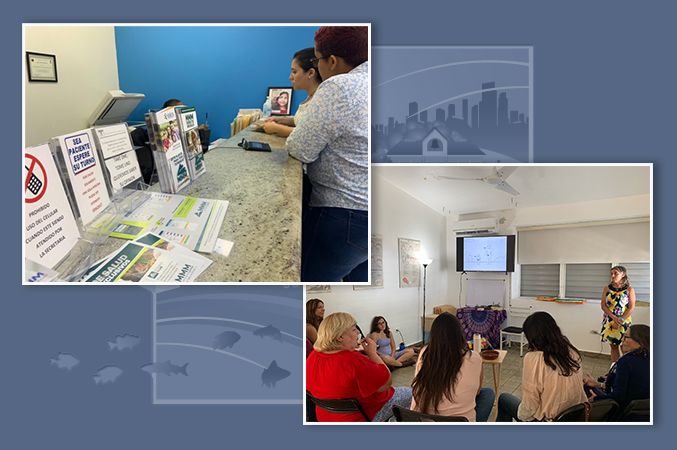
PEHSU staff visit a health care provider and distribute training materials (left) and San Juan community health workers attend a training session (right). (Photos courtesy of C.M. Galan, left and M.T. Herrera, right)
Administering Pediatric Environmental Health Training to Health Care Providers
From feedback gathered at meetings with health care providers in the U.S. Virgin Islands and Puerto Rico, the researchers determined that the education project would provide in-person training to pediatric health care providers. Trainings would give providers the tools to advise their patients’ caregivers on how to reduce harmful environmental exposures.
“Pediatric health care professionals are trusted messengers for children’s caregivers,” stated Sheffield. “They can effectively reach those who need this information.”
The training included in-person visits to pediatric providers during which PEHSU staff introduced environmental health concepts that could be applied in practice. Staff also provided action kits that included clinical tools for the providers and resources for caregivers with actionable steps on how to address health concerns in the environment. For example, action kits included a checklist of topics to cover in an environmental health screening. Resources for caregivers included ways to prevent mold in the home, and actions to take if they spotted mold.
Leveraging Partnerships to Reach a Wide Audience
The researchers had formed partnerships with health professionals in the U.S. Virgin Islands and Puerto Rico through prior PEHSU work and engaged with these partners to develop and implement this project. The researchers worked with PEHSU health professionals to identify the settings where health care providers could be reached for training. For example, when determining where to engage with nurses, the team identified specific organizations, sites, and other locations, such as federally qualified health clinics and community organizations providing environmental resources to families.
“To facilitate new partnerships, and expand existing ones, our team networked with these organizations and provided them a preview of our planned training,” said Sheffield. “We incorporated their feedback into the training curriculum and resources that we developed.”
The PEHSU program staff who trained health care providers reached a wide variety of settings and professionals. Trainings engaged nurses, nurse practitioners, physicians, midwives, and community health workers at clinics, hospitals, and community health organizations. Health departments also connected the PEHSU team with a network of providers that further expanded the level of engagement.
In several instances, engagement with a single provider at an organization led to invitations to return for a training event for a large cohort of providers. This type of relationship building with community partner input is central to the PEHSU and modeled by the Community Engagement Core at Mount Sinai where the Stakeholder Advisory Board provides critical feedback and supports researchers with idea generation.
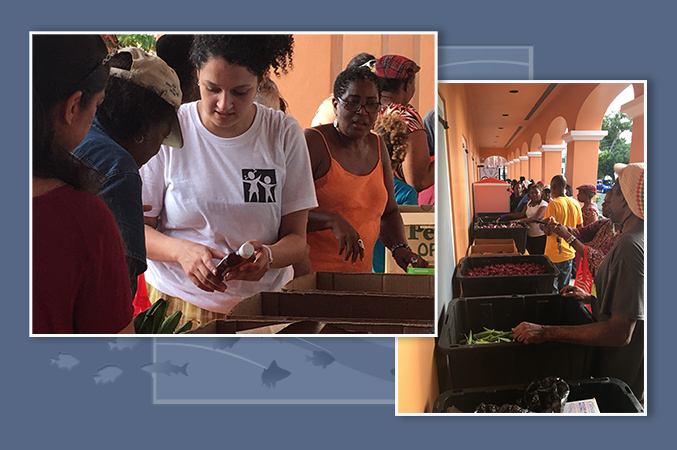
A PEHSU staff member supports the U.S. Virgin Islands PEHSU Produce Pop-up event (left) and U.S. Virgin Islands residents gather fresh produce at the PEHSU Produce Pop-up event (right). (Photos courtesy of Perry Sheffield)
Health Care Providers Put Training into Practice
Providers who received training were surveyed about their current environmental health screening and referral practices, and their intention to implement changes based on the training. Before the training, 40% of respondents stated they rarely asked patients about their environmental health history. But after the training, 73% said they intended to change their screening practices. Additionally, 73% responded that they had learned more about environmental health through the training.
Sheffield added, “We were pleased the training and action kits were successful in increasing environmental health knowledge and encouraging incorporation of environmental health into pediatric clinical practice. This work was only possible because of our amazing partners in the U.S. Virgin Islands and Puerto Rico that were engaged through the on-going work of the PEHSU. With input from our partners, we were able to iterate on our approach and expand the PEHSU’s work to increase children’s environmental health resources that strengthen capacity to respond to disasters.”
In partnership with Frederiksted Health Care, Inc. , a multi-site clinic, and local non-profit Virgin Islands Good Food Coalition , the PEHSU also hosted a “PEHSU Produce Pop-up” in St. Croix, U.S. Virgin Islands, where clinicians gave families environmental health advice and vouchers for fresh produce that was supplied to the clinic by local farmers. The event was attended by approximately 200 families, and it laid a foundation for additional collaborations.
NIEHS Grant Supports Communications Research to Address Health Disparities
NIEHS recently awarded a five-year grant to researchers in Atlanta to address health disparities through transformative communication strategies. The researchers will focus on how to effectively communicate the dangers of environmental exposures to diverse communities, including Black communities in Atlanta, which have experienced decades of environmental racism. The grant brings together environmental health scientists from Emory University and communications experts from the University of Georgia in the new Center for Children’s Health Assessment, Research Translation and Combating Racism. The team will develop messaging strategies, with a focus on health literacy, intended to improve children’s health, and will translate environmental health research findings to stakeholders in the community, academia, and health care systems. For more information, read the Emory press release.
NIEHS-funded Researchers Create Soil Sampling Instructional Video
NIEHS-funded researchers at the University of Pennsylvania released a how-to video on collecting soil samples for lead testing. They created the video for community members who participated in their soil collection project, which is detailed in the March PEPH newsletter feature on socioeconomic factors and the risk of lead exposure. The video may also be useful to other citizen science projects that require soil collection for lead testing. The short video details how to prepare a collection bag, how to use a mapping app to get the GPS coordinates of the sample location, and how to collect a soil sample. For more information on the project, visit the Center of Excellence in Environmental Toxicology’s lead soil sampling webpage.
NIH Climate Change Initiative Updates Strategic Framework
The NIH Climate Change and Health Initiative updated its Strategic Framework in February. This cross-cutting NIH effort aims to reduce health threats from climate change and to build health resilience in individuals, communities, and nations. The framework identifies four core elements (health effects research, health equity, intervention research, and training and capacity building) and supporting areas of science such as data integration, disaster research response, dissemination and implementation science, epidemiology, and exposure and risk assessment. Read the framework and the fact sheet.
HHS Prioritizes Equity in Addressing Climate Change
The HHS Office of Climate Change and Health Equity, established in August 2021, published a blog post on the connection between climate change and health and the office’s priorities. The article emphasizes that climate change is already happening and that people in the U.S. have, in the last year alone, felt many effects, including record-setting heat events, wildfires, and hurricanes. These events significantly affect human health in different ways, but burdens of the health effects are not equally shared. Certain people, such as those living with poverty or some communities of color, are more likely to experience harm than others. The connection between existing health disparities and the greater risk on health posed by climate change means that health equity and climate change must be addressed together. To this end, the office organizes its activities into three areas:
For more information, read the full blog post and sign up for the Office’s listserv.
U.S. Surgeon General Releases Call for Stories and Research on Health Misinformation
The U.S. Surgeon General has released a request for information (RFI) on the Impact of Health Misinformation in the Digital Information Environment in the U.S. Throughout the COVID-19 Pandemic. The public is invited to submit personal experiences, and researchers have the opportunity to submit data and other research findings related to health misinformation. The RFI is related to the previously released U.S. Surgeon General's toolkit for addressing health misinformation, which is geared to community leaders. The RFI will focus on gathering information to learn from the COVID-19 pandemic, during which health misinformation led to confusion and rejection of public health measures, such as refusal to receive COVID-19 vaccines. Submissions may be made until May 2. Comments may be submitted through the Federal eRulemaking Portal, via the online form, or by email.
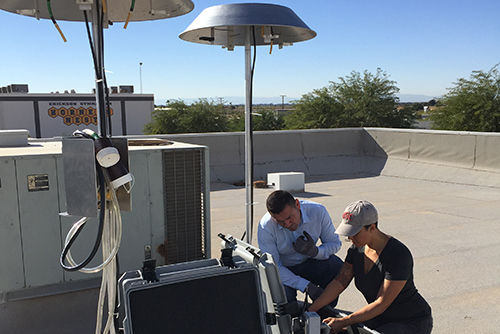
PEPH Environmental Health Chat Podcast Series
The Shrinking Salton Sea and Children’s Health
PEPH Environmental Health Chat Podcast Series
The Shrinking Salton Sea and Children’s Health
In our podcast, NIEHS-funded researchers Shohreh Farzan, Ph.D., an environmental epidemiologist with the University of Southern California, and Esther Bejarano, of the non-profit Comite Civico del Valle Inc., describe their community-based project in Imperial Valley, California. Their project addresses local residents’ concerns about children’s lung health due to potential nearby air pollution. The Salton Sea, a salt lake with a receding shoreline, has lakebed dust that may add harmful particulates to the community’s air.
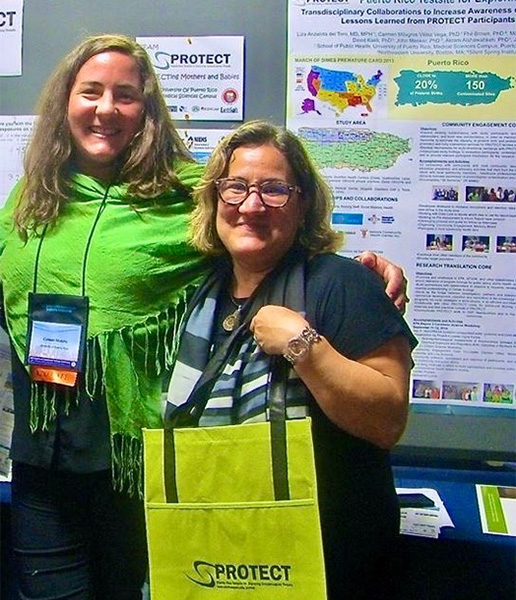
PEPH Grantee Highlight
Carmen Vélez-Vega, Ph.D.
Carmen Vélez-Vega, Ph.D., applies her background in social work and social policy analysis to address environmental health concerns in Puerto Rico. She works closely with community members as a co-lead of the Puerto Rico Testsite for Exploring Contamination Threats and the community outreach and translation core of the Center for Research on Early Childhood Exposure and Development in Puerto Rico. Both programs examine the effects of environmental exposures on maternal and child health. Vélez-Vega was also appointed to the U.S. Environmental Protection Agency’s Children’s Health Protection Advisory Committee. In all aspects of her career, she builds trust with study participants and coordinates reporting back findings. Vélez-Vega also works collaboratively with health care professionals to provide environmental health training and advises on children’s health.
Funding Opportunities
Notice of Special Interest (NOSI): Administrative Supplements to Recognize Excellence in Diversity, Equity, Inclusion, and Accessibility (DEIA) Mentorship
Supports administrative supplements to existing awards of scientists who are outstanding mentors and who have demonstrated compelling commitments and contributions to enhancing diversity, equity, inclusion, and accessibility in the biomedical sciences. Excellent mentorship and superior training are critical to the development of exceptional future scientists. This administrative supplement recognizes the crucial role great mentors play in the development of future leaders in the scientific research enterprise. As administrative supplements, the work proposed needs to be within the scope of the research or training that is already supported. The award must have a component related to mentoring. Examples include but are not limited to: a research education program that describes mentored research experiences, a career development section, a plan to enhance diverse perspectives, or a discrete objective related to mentoring.
Deadline: April 7, 2022
Emergency Award: RADx-UP Community-Engaged Research on Rapid SARS-CoV-2 Testing Among Underserved and Vulnerable Populations (U01 Clinical Trial Optional)
This FOA provides an expedited funding mechanism to support Phase III of the Rapid Acceleration of Diagnostics – Underserved Populations (RADx®-UP) initiative. Research will implement and evaluate SARS-CoV-2 rapid diagnostic testing in communities experiencing health disparities. Research projects will develop rapid testing implementation strategies among both unvaccinated and vaccinated individuals that leverage community relationships and cultural knowledge, specifically with respect to community entry, trust building, and culturally appropriate ways of engaging and tapping community held knowledge about best practices to reduce rapid testing barriers at various points-of-care and make best uses of test kits and results.
Deadline: May 2, 2022
Emergency Awards: RADx®-UP - Social, Ethical, and Behavioral Implications (SEBI) Research on Disparities in COVID-19 Testing Among Underserved and Vulnerable Populations (U01 Clinical Trial Optional)
This FOA provides an expedited funding mechanism to support Phase III of the Rapid Acceleration of Diagnostics – Underserved Populations (RADx®-UP) initiative. Successful SEBI research projects will address the evolving challenges of the pandemic with a focus on understanding and addressing barriers to COVID-19 testing in underserved and vulnerable populations, as well as the secondary impacts of testing mandates combined with other mitigation measures. Psychological and communication science interventions to improve uptake of testing and vaccination are also of interest. Applications should inform the distribution, accessibility, acceptability, and use of COVID-19 testing resources, including, but not limited to, rapid tests administered in multiple settings, including outside of healthcare contexts (e.g., within homes, schools, and workplaces). Addressing the roles of interpersonal and structural racism and discrimination and other factors that may contribute to observed disparities is also important. Research is needed to examine institutional decisions, practices, and biases that can be modified to recognize and better meet communities’ preferences and goals related to COVID-19 testing.
Deadline: May 2, 2022
Intervention Research to Improve Native American Health (R01 Clinical Trial Optional)
Supports research on interventions to improve health in Native American (NA) populations. This includes 1) etiologic research, where there is a significant gap in knowledge, that will directly inform intervention development or adaptations, 2) research that develops, adapts, or tests the efficacy or effectiveness of health promotion and disease prevention interventions, 3) research that tests culturally informed treatment or recovery interventions and 4) where a sufficient body of knowledge on intervention efficacy exists, research on dissemination and implementation that develops and tests strategies to overcome barriers to the adoption, integration, scale-up, and sustainability of effective interventions. Through this initiative, intervention and related research is sought to build upon community knowledge, resources, and resilience to test science-based, culturally appropriate solutions to reduce morbidity and mortality through identification and remediation of precursors to diseases and disorders and through culturally informed treatment.
Deadline: May 17, 2021; May 17, 2022; May 17, 2023
Letter of Intent: Due 30 days prior to the application due date
Limited Competition: Transformative Research to Address Health Disparities and Advance Health Equity at Minority Serving Institutions (U01 Clinical Trial Optional)
Supports collaborative investigative teams or individual scientists who propose unusually innovative research projects, which, if successful, would have a major impact in developing, implementing, or disseminating innovative and effective interventions to prevent, reduce, or eliminate health disparities and advance health equity. No preliminary data are required. Projects must clearly demonstrate, based on the strength of the logic, a compelling potential to produce a major impact in addressing health disparities and advancing health equity. Applicants are encouraged to carefully review the Answers to Frequently Asked Questions and view slides from a pre-recorded pre-application webinar to help prepare an application for this FOA. Additionally, an upcoming pre-application technical assistance webinar will take place on April 13, 2022. Registration is open.
Deadline: May 23, 2022
Support for Research Excellence Award (R16 Clinical Trial Not Allowed)
The purpose of Support for Research Excellence (SuRE) awards is to provide research grant support for faculty investigators who have prior experience in leading externally funded, independent research but are not currently funded by any NIH Research Project Grants with the exception of SuRE or SuRE-First awards. Awards are open to institutions that receive no more than $6 million per year from NIH Research Project Grants and additionally enroll at least 25 percent of undergraduate students supported by Pell grants or are an accredited medical/health professional school with a historical mission statement that explicitly states that it was founded to educate students from nationally underrepresented backgrounds.
Deadlines: May 26, 2022; May 26, 2023
Notice of Special Interest (NOSI): Epidemiologic Studies in Asian Americans, Native Hawaiians, and Pacific Islanders (Parent R01 Clinical Trial Not Allowed)
Encourages fundamental epidemiological research geared toward understanding the inter-relationships of biological, lifestyle/behavioral, environmental, and sociocultural factors and how these factors may impact health disparities and outcomes in Asian American, Native Hawaiian, and Pacific Islander subpopulations. Epidemiological inference is enhanced with variation in study designs; therefore, investigators may leverage a range of design methods in response to this NOSI, including electronic health record databases, registries, cohort studies, and cross-sectional surveys. Applications may propose leveraging existing studies or data, or may propose new data collection. To be considered responsive to this NOSI, applicants must propose to study at least one specific subpopulation of Asian Americans, Native Hawaiians, and Pacific Islanders. NIEHS applications to this funding opportunity occur through Research Project Grant (Parent R01 Clinical Trial Not Allowed), Addressing the Etiology of Health Disparities and Health Advantages Among Immigrant Populations (R01 Clinical Trial Not Allowed), and The Role of Work in Health Disparities in the U.S. (R01 Clinical Trials Optional).
Deadlines: February 5, 2022; June 5, 2022
Revolutionizing Innovative, Visionary Environmental Health Research (RIVER) (R35 Clinical Trial Optional)
The RIVER program is intended to invest in people rather than projects; rewarding individuals from the NIEHS recipient community who demonstrate a broad vision and potential for continuing their impactful environmental health research and who are most likely to benefit from a program emphasizing flexibility and sustained support. Only single principal investigator applications are allowed. Key features and benefits of the program fall into two large categories: 1) freedom from traditional focused specific aims and a structured research plan which will enable investigators to pursue new directions in their research as they arise throughout the funding period, and 2) the ability to devote increased effort to research, mentoring, and scientific service due to reduced time spent writing and managing multiple grant applications and awards.
Deadline: June 9, 2022
Letter of Intent: Due 30 days prior to the application due date
Lasker Clinical Research Scholars Program (Si2/R00 Clinical Trial Optional)
The Lasker Clinical Research Scholars program will offer applicants the opportunity to compete for a unique combination of intramural and extramural resources for clinical research. The program will support a small number of exceptional clinical researchers in the early stages of their independent careers to promote their development as fully independent scientists. The program combines a period of research experience as a tenure-track investigator in the Intramural Research Program with additional years of independent financial support, either within the Intramural Research Program or at an extramural research institution. Successful applicants will receive support in two phases: 1) support for scholars in the Intramural Research Program for up to 5 years, with the possibility of an extension for an additional 2 years; and 2) either continued Intramural Research Program support, or up to 3 years of support to continue research as an independent clinician scientist at an extramural institution.
Deadline: June 24, 2022
Research Enhancement Award Program (REAP) for Health Professional Schools and Graduate Schools (R15 Clinical Trial Not Allowed)
The REAP program will enable qualified scientists to receive support for small-scale research projects. It is anticipated that investigators supported under the REAP program will benefit from the opportunity to conduct independent research; that the grantee institution will benefit from a research environment strengthened through REAP grants; and that students at recipient institutions will benefit from exposure to and participation in scientific research in the biomedical sciences so that they consider careers in biomedical research. The REAP funding opportunity emphasizes the engagement and inclusion of health professional, undergraduates, and/or graduate students in research. Since diversity strengthens the research environment, REAP grantees are encouraged to recruit and include students from diverse backgrounds, including those from groups underrepresented in the biomedical research workforce. NIEHS will accept applications describing research projects that will have a defined impact on the environmental health sciences and must have a research focus on exposure-health related responses from environmental agents within the mission interest of the NIEHS.
Deadlines: June 25, 2022; October 25, 2022




